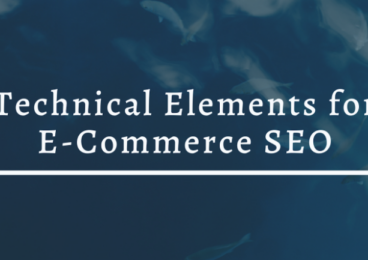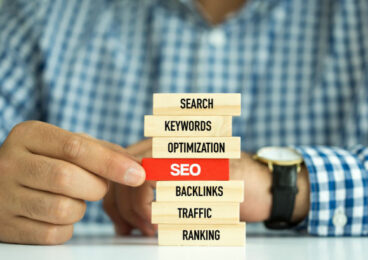 Reading Time: 4 minutes
Reading Time: 4 minutesIn this constantly changing, hyper-competitive online atmosphere, simply having a website isn’t enough to attract clients and increase your traffic. You have to ensure it’s being regularly updated and is presenting fresh content. Tailoring your website and your content to rank well in searches for keywords relevant to your brand and content is how to win the SEO game, but, in a game where the rules are constantly changing, it’s hard to know how to win.
Marketers and SEO experts look for ways to capitalize on Google’s search algorithms to ensure their sites rank as highly as possible. In turn, Google and other search engines are constantly updating and improving their algorithms to offer more accurate and relevant search results for users and a level playing field for businesses. While many SEO experts have learned to play this game, many still fail to understand that a holistic SEO strategy incorporates elements both on and off their websites – and can expand their reach while boosting their presence.
What Is On Page SEO?
On page SEO is the SEO manipulations made to adjust the website itself and improve the site’s search engine rankings. Some of the basic elements of on page SEO include:
- HTML coding optimized for SEO. Google and other search engines reward websites with solid coding and penalizes those with poorly optimized or bug-ridden HTML code. Poor coding will also lead to longer page loading times. This in turn will frustrate users and likely increase your bounce rate – the rate at which users click to your site and then quickly click away to a different one. Invest in solid web development to ensure the bones of your website function as intended.
- High quality content. A golden rule of the SEO world for years has been “content is king,” and that rule hasn’t changed. The content you upload and publish to your website has a dramatic impact on your website’s SEO. Experiment with different content formats and strive to always provide your leads and customers with valuable content relevant to their needs and interests.
- Page structure. Does your website include appropriate alternative text, meta descriptions, and header tags? Search engine bots score websites based on the completeness of the elements of each page. Leaving out meta descriptions and alt text can have a negative impact on your on page SEO.
- URL structure. Do the pages of your website follow an intuitive and simplified URL structure? An organized URL structure makes it easier for search engine bots to crawl from page to page, increasing your website’s readability score as fast as the bots can navigate your site.
- Internal linking. Your site should have a moderate amount of internal linking. For example, a service page could link to a few of your internal blog posts that cover different aspects of the offered service. You don’t want to overload your website with internal linking, but a strong balance of internal links and credible external links will help your SEO efforts tremendously and increase readability for search engine bots.
On page SEO is the simpler side of SEO because you have complete control over how you structure your website, what type of content you publish to the site, and the nuts and bolts over your website’s construction and coding. Off page SEO is a bit more difficult to manage solely because you can’t always control it.
Elements of Off Page SEO
Search engines like Google do not rank websites based solely on those sites’ on page SEO efforts. Many factors that occur off page influence search result rankings, and it’s vital for every SEO expert to understand the basic elements of off page SEO:
- Backlink history. One of the most important elements of off page SEO is the number of credible websites linking back to your website and your content. You can boost your backlink history strength by connecting your Facebook profile to your website to boost organic traffic from social media, joining a review or directory website, and submitting guest blogs and other guest content to top-performing industry websites. Remember, quality is much more important than quality when it comes to backlinks; one high-quality and credible backlink is worth hundreds of low-quality backlinks.
- Domain authority. Your domain name is the name of your website, and the longer you hold onto that name, the more authority it earns in the eyes of search engine bots. The number of other domains that refer to your domain, your domain’s previous ownership history, and the longevity of your ownership of the domain all influence your domain authority score.
- Social media engagement. Connecting your brand’s social media profiles to your main domain is a great way to establish stronger backlink history, but you can take this a step further for stronger off page SEO. Working with influencers and sharing guest content with leading voices of your industry can generate a lot of discussion about your brand on various social media outlets.
- Use online directories. Google Business Profile is a fantastic tool for any SEO professional who wants a snapshot of their performance in search results. Creating a Google Business Profile listing will automatically ensure your business appears in the most relevant searches,
Off page SEO may be a bit more difficult to control, but you can take proactive steps to increase your brand’s visibility and boost your off page SEO. Start by looking for broken links on other sites related to your industry. Offer to replace those broken links with relevant content from your own brand. Self-promotion also helps; develop content that positions you as an expert in your niche and coordinate cross-promotion with influencers, industry leaders, and your partners. Guest content is a very potent tool for boosting off page SEO. You can also submit guest content with strong backlinks already loaded into the content to boost your backlink history score.
SEO may be a game with constantly changing rules, but you can take advantage of multiple channels to boost your website’s search engine rankings. This takes consistency and vigilance so you can address algorithm changes and fix broken links as soon as possible, but the reward is stronger SEO both on and off your webpage.
At Vizion Interactive, we have the expertise, experience, and enthusiasm to get results and keep clients happy! Learn more about how our SEO Audits, Local Listing Management, Website Redesign Consulting, and B2B digital marketing services can increase sales and boost your ROI. But don’t just take our word for it, check out what our clients have to say, along with our case studies.




